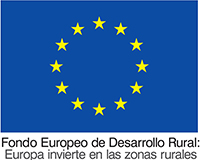Mediterranean cereal systems for healthier soils and more sustainability
- Project start: 01/09/2022
- End of project: 30/08/2026
- Main researcher: Haritz Arriaga/Ana Aizpurua
- Department: Conservation of Natural Resources
- Funder: Ministry of Science and Innovation- European Regional Development Fund ERDF (PID2021-127339OR-C43)
- Budget: 145,200 euros
- Partners: University of Lleida, IRTA (Institute of Agri-Food Research and Technology).
Soil fertility management is essential to improve the sustainability of cereal systems, including flour wheat production, in order to contribute to the achievement of the objectives of the EU strategies to reduce nutrient losses and fertiliser use, ensuring that soil health does not deteriorate. Fertility improvement involves the use of different practices (use of organic fertilisers, crop rotation, variety selection, organic or conventional production, etc.) to increase the nutrient use efficiency of crops and thus reduce nutrient losses to the environment. It is necessary to work at different time scales, as each practice influences nutrient, crop and soil effects at different temporal levels.
Objetive:
The overall objective of the GRAIN-SYST project is to research and identify strategies to improve wheat grain production and quality, nutrient use efficiency (N and P) and soil health in organic and conventional farming systems in the Basque Country. The environmental assessment of the different production approaches through life cycle analysis (LCA), and the prediction of the future behaviour of the system through soil-crop models are basic elements to improve the sustainability of the system. The development of the GRAIN-SYST project involves measurements on crop yield, nutrient dynamics (N and P) and soil health in short-term trials to assess the influence of different agronomic practices on these aspects in conventional and organic wheat cropping systems. A selection of the main practices will be assessed using the LCA methodology. The STICS model will also be used, after parameterisation and evaluation in different farming systems, to predict the most likely long-term effects of different agronomic practices on crop productivity and nutrient efficiency.




